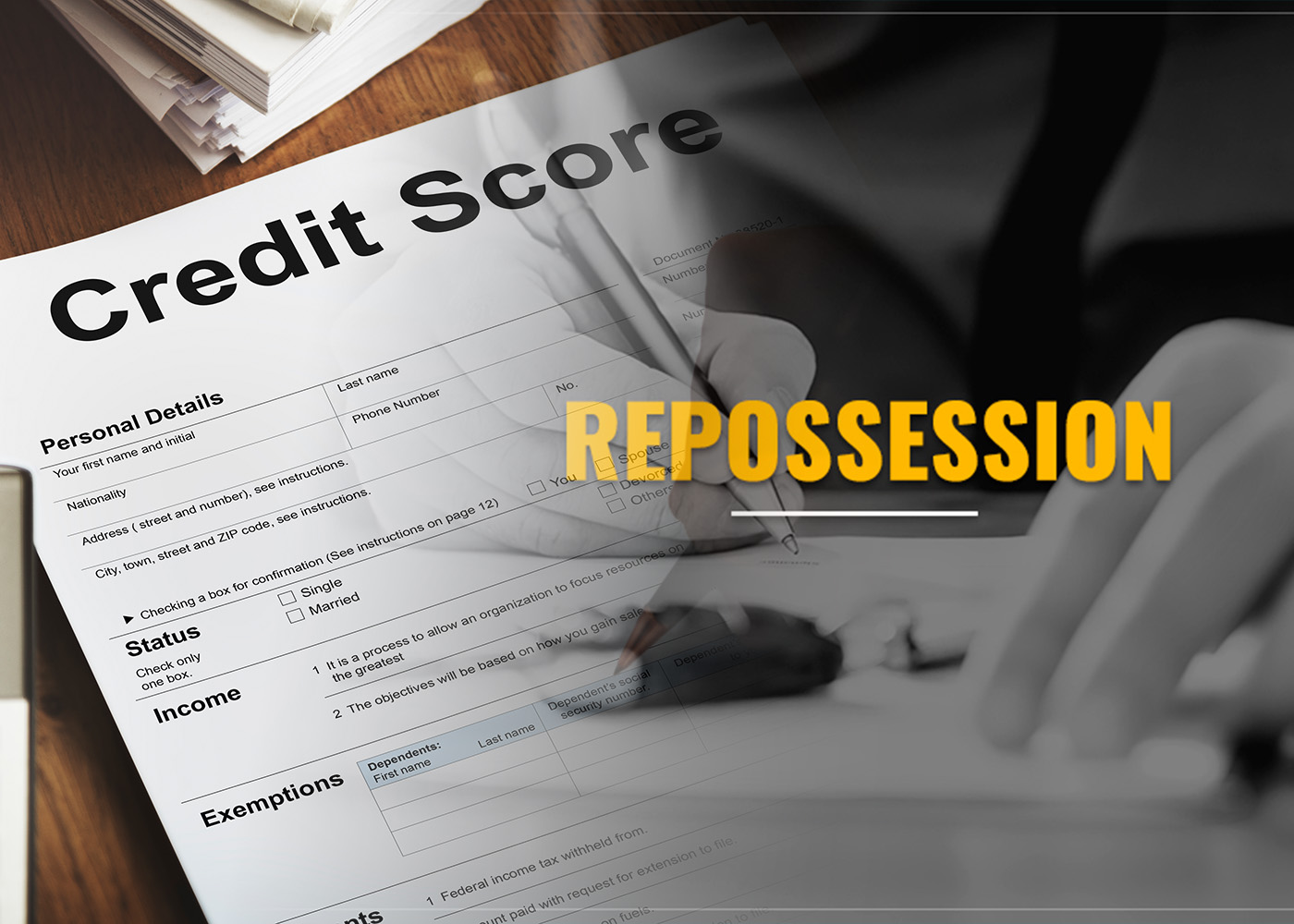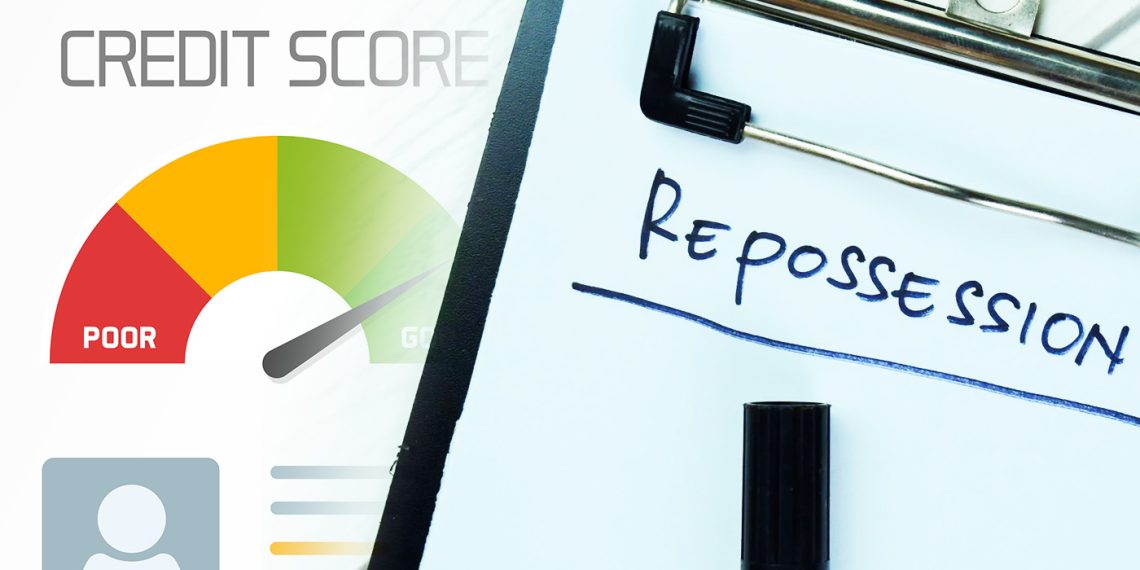Repossession can be an incredibly expensive event, and it may come with even more costly consequences to your credit score. Understanding the actual cost of a repossession, in terms of both money and credit damage, is something that financial experts recommend should not be taken lightly. With a bad credit report comes hefty fees, loan disqualifications, higher costs on insurance premiums, and reduced job opportunities – all things that nobody wants to go through. In this blog post, we’ll break down what really happens during repossession: the real cost behind it and its implications on your credit score for years to come if proper steps are not taken to remedy the situation.
What Is Repossession?
When a borrower is late on loan payments or defaults on a loan, the lender or creditor can take back the property that was used as collateral. This can include a car, a home, or even personal items. This process is known as repossession.
When borrowers miss multiple payments and don’t try to negotiate a payment plan with the lender or creditor, they could face repossession. The lender will then sell the property to recover the loaned money. Repo can severely impact the borrower’s credit score and make it challenging to secure credit in the future.
How Many Points Does a Repo Drop Your Credit Score?
Your credit score is a number that shows how likely you are to repay a loan. It’s based on how often you pay your bills, how much money you owe, how long you’ve had credit, and what kinds of credit you have. It can hurt your credit score if a lender or creditor tells the credit agencies that they took your property because you didn’t pay. This happens because it affects several parts of the calculation, which could cause your score to decrease.
If your car is repossessed, it will harm your credit score. Missing payments and having a delinquent account will lower your score, and repossession will worsen it. This negative event will be reported to credit bureaus and significantly decrease your credit score.
If your loan or line of credit gets repossessed, it can harm your credit utilization ratio. This ratio measures the amount of debt you owe compared to your available credit. Since your available credit will also drop along with the amount you owe, your credit utilization ratio may be negatively affected, which could lower your credit score. A repossession can affect your credit history’s total length, which is considered when calculating your credit score. If the repossessed account was one of your oldest ones, it could reduce your credit history’s length and possibly decrease your credit score.
When your vehicle is repossessed, various factors will significantly affect your credit score. To recover from repossession, you should take steps to boost your credit score, like paying bills on time, reducing debt, and collaborating with a credit counselor to form a plan to enhance your creditworthiness.

How Long Does a Repossession Stay on Your Credit?
Your credit report can hold onto a repossession record for seven years from the reporting date. The repossession will have the largest negative impact on your credit score within the first couple of years. Over time, the negative impact will decrease if you maintain a positive credit history.
While the repossession may eventually be deleted from your credit report, it can still affect your creditworthiness for a long time. Lenders and creditors can see the repossession on your credit report until it is erased, and it may cause them to hesitate to approve you for any credit or loans in the future.
How to Remove a Repossession from Your Credit Report
It can be challenging to take off a repossession from your credit report as it is a significant negative event that usually lasts for up to seven years on your credit report. Yet, you can follow a few steps to attempt to lessen the impact of repossession on your credit score or eliminate it.
- Dispute inaccuracies: If you think the repossession was reported inaccurately or if there are mistakes on your credit report regarding the repossession, you can file a dispute with the credit bureaus. They will investigate and may delete the negative information if necessary.
- Negotiate with the creditor: It is possible to remove the repossession from your credit report by negotiating with the creditor or lender. This can be done by paying off any outstanding amount of the loan or account. However, the outcome of the negotiation will depend on your individual circumstances, and it may not always be successful.
- Wait it out: If you can’t get the repossession off your credit report, your best option may be to wait for it to disappear in seven years. While you wait, try to boost your credit by following the tips provided below.
Rebuilding Your Credit After a Repossession:
Rebuilding your credit after a repossession can take time, but it is possible with a few key strategies:
- Pay all bills on time: To rebuild your credit, it’s crucial to ensure that you make all payments on time. You can do this by setting up automatic payments or reminders to avoid missing any payments.
- Reduce debt: Reducing your debt can improve your credit utilization ratio and demonstrate to lenders that you can manage credit responsibly.
- Open new accounts: To build good credit, consider opening new credit accounts and using them wisely. However, it is important to only apply for accounts that you actually need and can handle appropriately.
- Monitor your credit: It is recommended that you check your credit report and score frequently to keep track of your progress and ensure that all information is accurate. You can obtain a complimentary credit report annually from all three primary credit bureaus by visiting AnnualCreditReport.com.
- Consider a secured credit card: If you’re having difficulty being approved for a regular credit card, a secured credit card could be a viable option. With these cards, you need to provide a deposit as collateral, but when used responsibly, they can help to build a positive credit history.
Please keep in mind that it will take time and patience to restore your credit after a repossession. You can improve your creditworthiness and increase your chances of getting approved for credit and loans in the future by proactively managing your finances and credit responsibly.
Let’s Sum It Up:
To sum up, if your belongings are repossessed, they can greatly harm your credit score and remain on your credit report for a maximum of seven years. The magnitude of the score decrease is based on several aspects, like your credit history and current score. Nonetheless, you can reduce the damage by challenging any errors, discussing them with the lender, or simply waiting for them to disappear from your credit report. You can rebuild your credit after repossession by paying your bills on time, reducing debt, opening new accounts, monitoring your credit, and getting a secured credit card. With persistence and commitment, you can enhance your credit score and boost your eligibility for credit and loans in the future.













